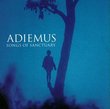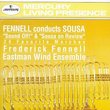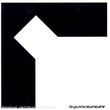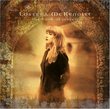| All Artists: Hector Berlioz, John Nelson, Susan Graham, Orchestra of the Royal Opera House Title: Susan Graham ~ Berlioz - Les nuits d'été Members Wishing: 0 Total Copies: 1 Label: Sony Release Date: 7/15/1997 Genres: Pop, Classical Styles: Vocal Pop, Opera & Classical Vocal Number of Discs: 1 SwapaCD Credits: 1 UPC: 074646273029 |
Search - Hector Berlioz, John Nelson, Susan Graham :: Susan Graham ~ Berlioz - Les nuits d'été
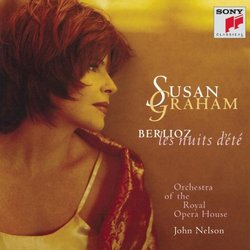 | Hector Berlioz, John Nelson, Susan Graham Susan Graham ~ Berlioz - Les nuits d'été Genres: Pop, Classical
On casual listen, Graham can seem like yet another pretty voice. And it is extremely pretty. But there's an intelligence and learnedness that can only make her more interesting as time goes on. As is, her performances ar... more » ![header=[] body=[This CD is available to be requested as disc only.]](/images/attributes/disc.png?v=430e6b0a) ![header=[] body=[This CD is available to be requested with the disc and back insert.]](/images/attributes/disc_back.png?v=430e6b0a) ![header=[] body=[This CD is available to be requested with the disc and front insert.]](/images/attributes/disc_front.png?v=430e6b0a) ![header=[] body=[This CD is available to be requested with the disc, front and back inserts.]](/images/attributes/disc_front_back.png?v=430e6b0a) |
Larger Image |
CD DetailsSynopsis
Amazon.com On casual listen, Graham can seem like yet another pretty voice. And it is extremely pretty. But there's an intelligence and learnedness that can only make her more interesting as time goes on. As is, her performances are slightly undercooked, though there are some moments during Les Nuits d'été as passionate and committed as one could want. The arias added to fill out the disc aren't heard in optimal performances, but show what riches lie in Berlioz's neglected operatic output, namely Ascanio's lighthearted aria from Benvenuto Cellini and the long soliloquy from Beatrice and Benedict. --David Patrick Stearns Similarly Requested CDs
|
CD ReviewsThe greatest "Nuits d'Ete" on record! madamemusico | Cincinnati, Ohio USA | 09/01/2002 (5 out of 5 stars) "I have been listening to Berlioz' song cycle for nearly thirty years, and have heard most of the famous recordings: Teyte, Danco, de los Angeles, Steber, Janet Baker, Jessye Norman et al. Formerly, it was only Baker who penetrated the poetry of the lyrics...the "old" French style was to simply sing in a straightforward manner with no particular inflection, a style that Teyte and Danco worked to perfection. But the advent of such "chanson" singers as Gerard Souzay, Regine Crespin and Gabriel Bacquier changed all that, their approach was more specifically poetic. That is the approach that Graham uses here, and I find that it works beautifully.Only in "Villannelle" does one hear the simple, straightforward style of Teyte or Danco. Almost immediately, in "Le Spectre de la Rose," one is hit with the meaning and feeling of Gautier's poetry...and one is literally swept away in the passionate performance of Graham and her conductor, John Nelson. I agree with the reviewer who said that the orchestra is somewhat recessed in sound, but Nelson brings out so many felicitous details that it inevitably doesn't matter....and, unlike Baker, Graham is a mezzo-soprano who can sing "Nuits d'Ete" in the original key, adding a soprano luster and sweep to her performances....and the opera arias are equally well sung. Highly recommended!!" Stunning emotion Gertien Smits | Amsterdam, the Netherlands | 02/01/2000 (3 out of 5 stars) "In this performance of les nuits d'été Susan Graham brings across the emotional charge of the cycle perfectly. Her voice is wonderfully suited for both the lightness required for "Villanelle" and the drama in "Sur les lagunes". My not complete enthousiasm lies in the fact that the emphasis in the mixing is too much on the voice, and Berlioz' wonderful orchestration is shoved to the background, diminishing the superb interaction that can exist in these songs." Subtle elegance for Berlioz madamemusico | 12/05/1999 (5 out of 5 stars) "Susan Graham is a singer's singer. The more that one listens to this disc, the more this singer's introspection reaches the listener. This disc has much of the same haunting quality that Dame Janet Baker's older recording of Les Nuits D'ete has. Ms. Graham singing of the Berlioz arias is truly stunning at times. This singer is to be much admired. This listener hopes to hear more of her on future recordings."
|

 Track Listings (11) - Disc #1
Track Listings (11) - Disc #1